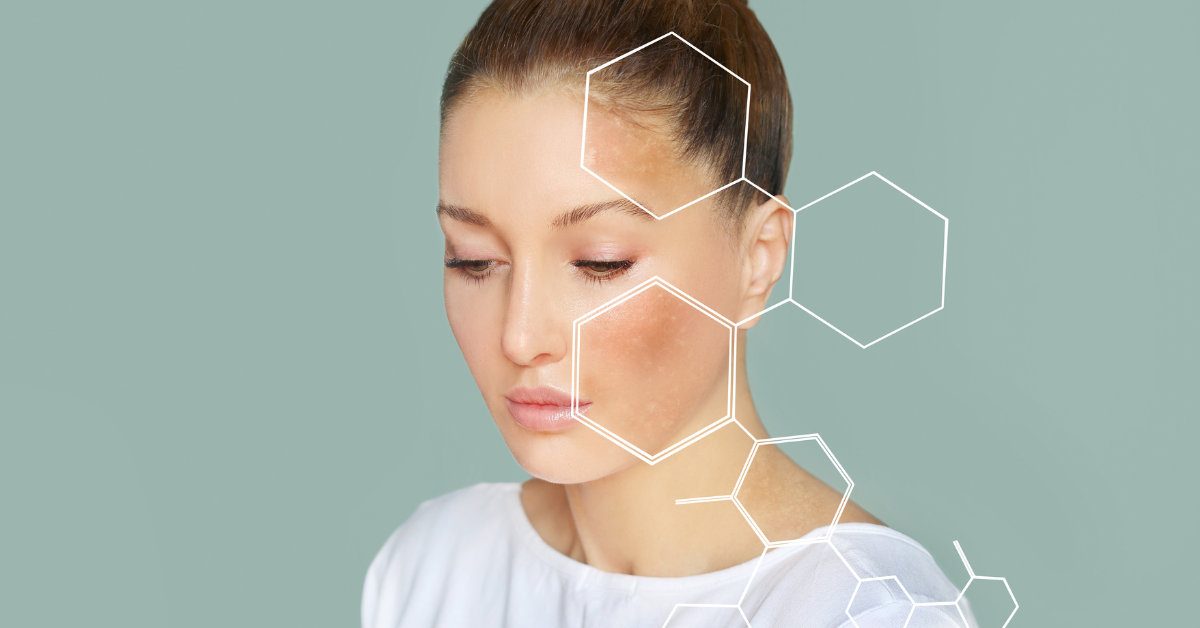
How to Minimize Damage from Hard Water
|
Time to read 8 min


|
Time to read 8 min
Have you ever experienced mineral buildups and soap scum? Spots on your glassware after washing them?
Welcome to the world of hard water.
But have you ever thought about what hard water can do to your skin and scalp? If it causes mineral buildups and soap scum, then what about on our skin? How would it affect our skin?
In today's blog, we're going to look into the (NEGATIVE) effects of hard water and what we can do to minimize it.
If you're like me and live in Canada, the chances are you have hard water. Here in Canada, hard water is a pretty common, but the extent of hardness can vary from one area to another.
In general, the eastern and central parts of Canada tend to have harder water compared to the western provinces. Here are some areas in Canada known for having hard water:
Hard water can be particularly damaging if you have dry, mature skin and sensitive skin because it disrupts the skin's natural oil balance, causing dryness, irritation, and the potential for clogged pores. These effects can lead to a range of skin issues, making it important to address hard water concerns, especially for individuals with sensitive or dry skin types.
Let's look at the damage that hard water can do to our skin in more detail.
Hard water contains a high concentration of minerals, primarily calcium and magnesium ions. When you wash your skin with hard water, these minerals can react with the natural oils (sebum) produced by your skin. This reaction can lead to the oils being broken down and removed more readily, effectively stripping your skin of its natural protective barrier.
As the skin's natural oils are removed or disrupted, the skin becomes more prone to dryness. This can lead to flakiness, itchiness, and overall discomfort. Dry skin is also more susceptible to irritation and may become red and sensitive.
The minerals in hard water can react with soap or cleansers to form soap scum. This soap scum can adhere to your skin, leaving a residue that is difficult to rinse away. This residue can contribute to a feeling of "film" on the skin and may clog pores. In addition, when exposed to sunlight or other environmental factors, soap scum can undergo chemical reactions, causing free radicals, leading to oxidative stress on the skin.
Soap scum and mineral deposits left on the skin's surface can potentially clog pores. When pores become blocked, it can lead to various skin issues, including acne and blackheads.
For individuals with preexisting skin conditions like eczema, psoriasis, or rosacea, hard water can exacerbate their symptoms. The drying and irritant effects of hard water can make these conditions more challenging to manage.
The mineral buildup on the skin's surface can make the skin more sensitive to other products and environmental factors, potentially leading to increased reactivity and discomfort.
Over time, hard water can contribute to premature aging of the skin. The constant removal of natural oils and the potential for irritation can accelerate the development of fine lines and wrinkles.
Hard water can leave mineral deposits on the skin, making it appear dull and less radiant.
Individuals with sensitive skin are more prone to experiencing adverse effects from hard water. The minerals in hard water, along with soap scum, can lead to skin irritation, dryness, redness, and itching. People with conditions like eczema or rosacea may find their symptoms exacerbated by hard water.
Hard water can exacerbate dry skin issues. The minerals can strip the skin of its natural oils, leading to increased dryness and potential flakiness. Dry skin is more susceptible to irritation and discomfort when exposed to hard water.
Individuals with normal skin may also notice the drying effects of hard water, but it may not be as severe or bothersome as it is for those with sensitive or dry skin. Nevertheless, it can still lead to dull-looking skin and potential irritation.
Oily skin types may experience fewer issues with hard water in terms of dryness. However, the minerals can still contribute to clogged pores and breakouts due to the formation of soap scum and the potential for excessive cleansing.
People with acne-prone skin can find that hard water makes it more challenging to cleanse effectively. The mineral buildup can contribute to clogged pores, which may increase the risk of acne breakouts.
Combination skin types, with both dry and oily areas, may experience varying effects from hard water. Dry areas may become drier and potentially irritated, while oily areas may be more prone to breakouts.
All these sound pretty terrible. The best thing would be to invest in a good water softener, but the price tag on it is not low, especially for a good one, and it requires constant maintenance.
Good thing is that there are way to minimize hard water damage WITHOUT investing in a water softener.
Shorten your shower time to reduce skin's exposure to hard water. Prolonged showers can increase the time your skin spends in contact with minerals. And be efficient with your cleansing routine. Wet your body quickly, apply soap or cleanser, and then rinse promptly. This reduces the time your skin is in contact with hard water.
Instead of hot water, use lukewarm water for bathing or washing your face. Hot water can exacerbate dryness and irritation. And lukewarm water may result in less soap scum formation compared to hot water, as it doesn't encourage the minerals in hard water to react as vigorously.
Install a showerhead with a built-in filter designed to reduce the mineral content in water. This can help provide softer water for your skin. Opt for a showerhead filter that utilizes multi-stage filtration. This typically includes multiple filter media or cartridges designed to remove various impurities, including minerals that cause water hardness. And ensure that the filter is specifically designed to reduce hardness minerals such as calcium and magnesium. Look for filters with ion-exchange resin or other media that can effectively capture these minerals.
Gentle exfoliation can help remove mineral buildup and dead skin cells, promoting healthier skin. Use a mild exfoliating product 1-2 times a week. For sensitive and dry skin, try using a milder physical exfoliation, instead of a chemical exfoliation. A mild physical exfoliator, like our Exfoliating Cleansing Cream employing Jojoba wax ester, can help remove mineral buildup caused by hard water, leaving the skin smoother.
How Exfoliating Cleansing Cream helps minimize hard water damage:
Jojoba esters help remove mineral buildup caused by hard water.
Jojoba Oil and Avocado Oil help alleviate dryness and irritation associated with hard water.
I can't emphasize this enough. (Read this very informative blog to learn WHY it's important to use a pH-balanced cleanser.) Using a pH-balanced, low soap cleanser is beneficial when you have hard water because it helps minimize the negative effects of hard water on the skin because it helps prevent overcleansing. Furthermore, a low soap cleanser produces less soap scum, reducing the chances of it adhering to your skin. This can leave your skin feeling cleaner and less coated after washing. So look for sulfate-free or soap-free cleansers that won't react with minerals to form soap scum, like our Mild Face Cleanser.
How Mild Face Cleanser helps minimize hard water damage:
Sulfate-free Palm Kernel / Coco Glucoside is mild and gentle on the skin, helping to cleanse without causing excessive dryness or irritation, which can be especially helpful in hard water areas.
Plant-based Glycerin helps counteract the drying effects of hard water.
Apply a moisturizer immediately after bathing or showering to lock in moisture and replenish the skin's natural oils. Look for moisturizers containing hydrating ingredients like hyaluronic acid or glycerin. One tip is to keep your favourite moisturizer in the bathroom so that you can moisturize right after bathing, showering, or washing face. Ingredients that we recommend are:
How Age-Defying Night Cream helps minimize hard water damage:
High concentrations of hyaluronic acid and plant-based glycerin help maintain hydration levels and counter the drying effects of hard water.
Jojoba oil, grapeseed oil, and avocado oil are rich in fatty acids support skin's barrier function, particularly beneficial for dry or damaged skin, including skin affected by the harshness of hard water.
Antioxidant-rich ascorbyl glucoside and EmblicaTM protect the skin from oxidative stress caused by soap scum from hard water minerals.
The negative effects of hard water can scare anyone, especially if you have dry skin or sensitive skin. But by incorporating these practices into your skincare routine and daily habits, you can help minimize the negative effects of hard water on your skin, maintain skin health, and promote a more comfortable and radiant complexion.
Jabbar-Lopez ZK, Ung CY, Alexander H, Gurung N, Chalmers J, Danby S, Cork MJ, Peacock JL, Flohr C. The effect of water hardness on atopic eczema, skin barrier function: A systematic review, meta-analysis. Clin Exp Allergy. 2021 Mar;51(3):430-451. doi: 10.1111/cea.13797. Epub 2020 Dec 13. PMID: 33259122.(Link)